Amid his more than two-year battle with dementia, Bruce Willis’ brain is “failing him,” and his ability to communicate is fading, according to his wife Emma Heming Willis.
“Bruce is in really great health overall, you know. It’s just his brain that is failing him,” Heming Willis told ABC News’ Diane Sawyer in the ABC special “Emma & Bruce Willis: The Unexpected Journey,” an inside look at the actor’s health battle and how his family, led by Heming Willis, has rallied to be his caregivers.
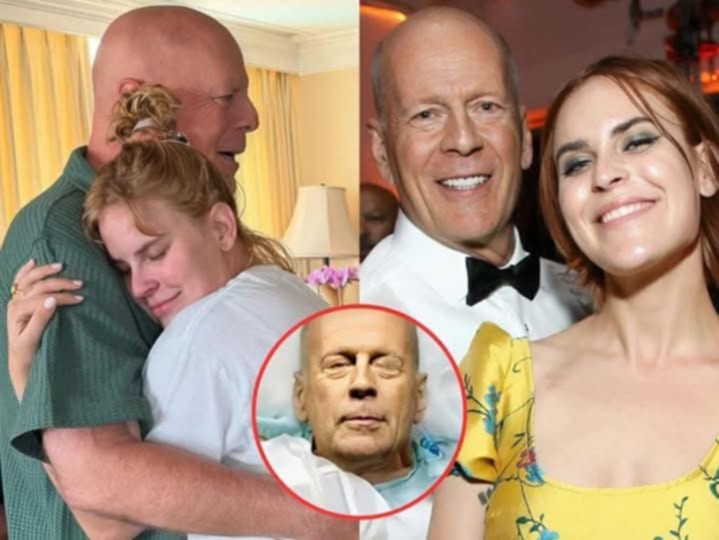 When asked whether Willis, her husband of 16 years, is able to recognize her, Heming Willis said a connection is still there.
When asked whether Willis, her husband of 16 years, is able to recognize her, Heming Willis said a connection is still there.
“I feel he does, right? Like, he, I know he does. You know, when we are with him … he lights up, right?” Heming Willis told Sawyer, adding that his connection is also present with the couple’s two young daughters and Willis’ three adult daughters. “He’s holding our hands. We’re kissing him. We’re hugging him. He is reciprocating. You know, he is into it.”
She continued, “And so that’s all I need, you know? I don’t need him to know that I am his wife, and we were married on this day, and this is what it — I don’t need any of that. I just wanna feel that I have a connection with him. And I do.”
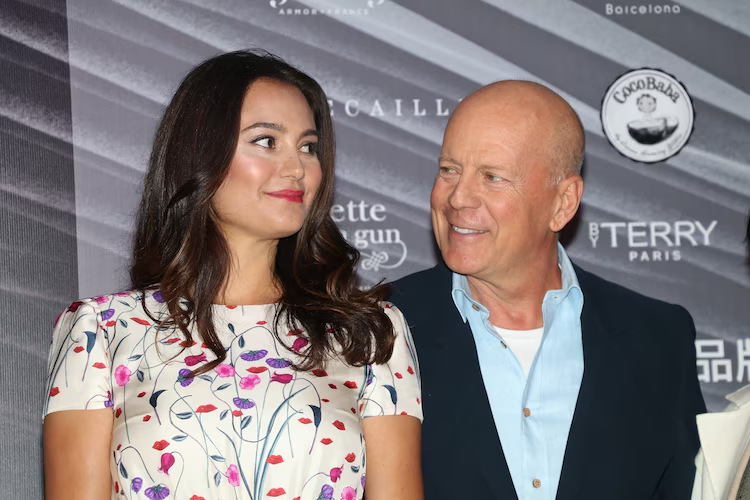
Willis’ family shared publicly in 2023 that he had been diagnosed with frontotemporal dementia, a type of dementia that impacts one’s personality and may cause behavioral changes, according to the Centers for Disease Control and Prevention.
The 70-year-old “Die Hard” actor has also lost much of his ability to communicate since his diagnosis, according to Heming Willis, who has written a new book about her family’s experience, “The Unexpected Journey: Finding Strength, Hope, and Yourself on the Caregiving Path.”
“The language is going, and, you know, we’ve learned to adapt,” she said. “And we have a way of communicating with him, which is just a different, a different way.”
Heming Willis, 49, said she and her family, through it all, still see glimmers of Willis’ personality and the “twinkle in his eye.”
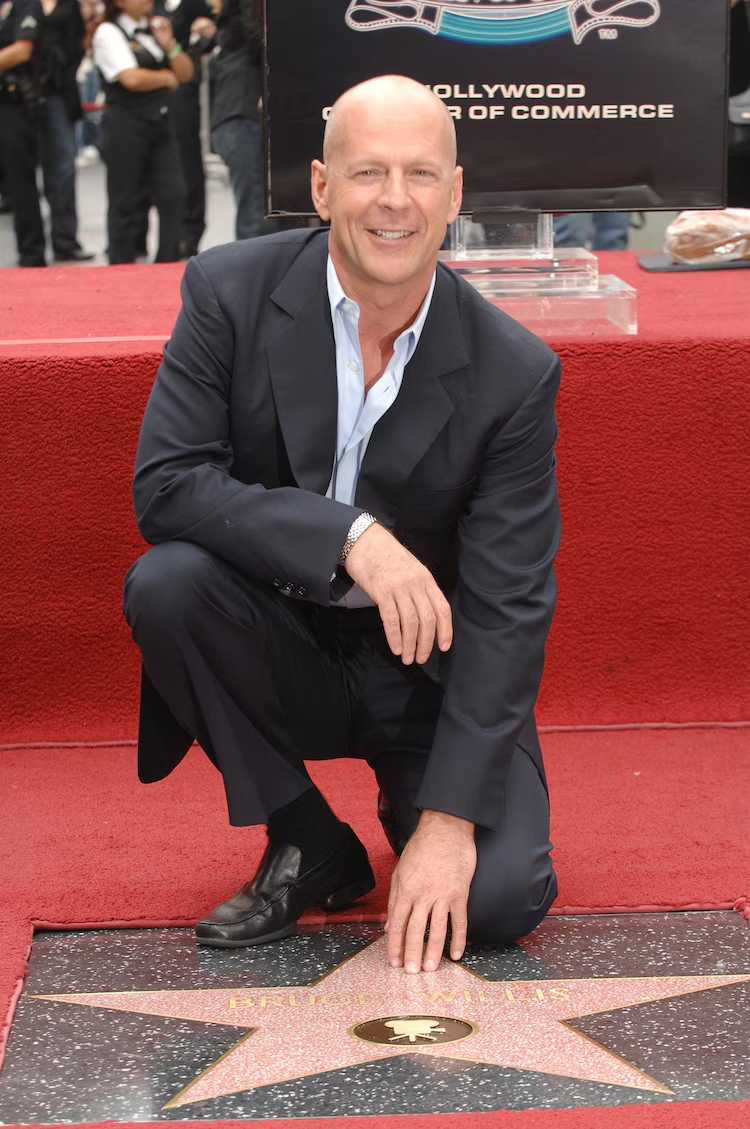 “Not days, but we get moments,” Heming Willis said. “It’s his laugh, right? Like, he has such, like, a hardy laugh. And, you know, sometimes you’ll see that twinkle in his eye, or that smirk, and, you know, I just get, like, transported.”
“Not days, but we get moments,” Heming Willis said. “It’s his laugh, right? Like, he has such, like, a hardy laugh. And, you know, sometimes you’ll see that twinkle in his eye, or that smirk, and, you know, I just get, like, transported.”
She said, “And it’s just hard to see, because as quickly as those moments appear, then it goes. It’s hard. But I’m grateful. I’m grateful that my husband is still very much here.”
In addition to his two daughters, ages 13 and 11, with Heming Willis, Willis is also the father to three older daughters, Tallulah, Scout and Rumer, with his ex-wife, actress Demi Moore.
As the “Moonlighting” actor’s struggle with dementia continued to progress, Heming Willis said she and her family made the decision to surround Willis with professional caregivers in a new home that is safe, quiet and easier for him to navigate.
Heming Willis called it “one of the hardest decisions” she’s had to make in her caregiving journey.
“But I knew, first and foremost, Bruce would want that for our daughters. You know, he would want them to be in a home that was more tailored to their needs, not his needs,” she said.
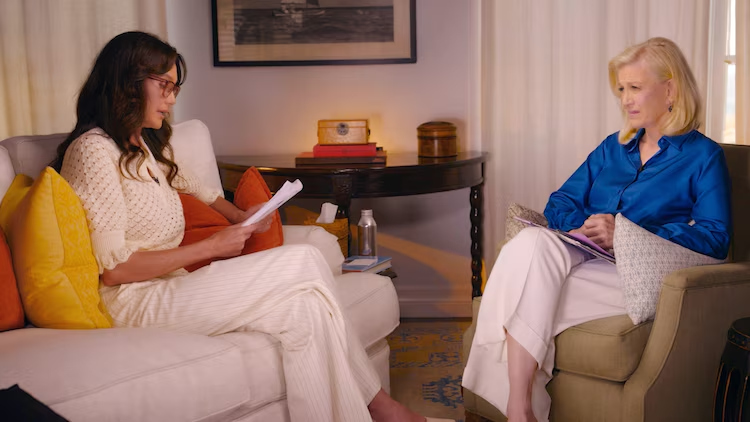 Willis was still working as an actor and enjoying life with his friends and family when FTD began to show up as a “whisper” in different ways, according to Heming Willis, including missing lines on movie sets, appearing cold and distant to family members and skipping out on activities he usually loved, like taking his younger daughters to school.
Willis was still working as an actor and enjoying life with his friends and family when FTD began to show up as a “whisper” in different ways, according to Heming Willis, including missing lines on movie sets, appearing cold and distant to family members and skipping out on activities he usually loved, like taking his younger daughters to school.
Heming Willis said at the time, she had no idea those were signs of an early-onset dementia.
In the first few months after Willis’ diagnosis, Heming Willis said she, like so many caregivers, thought she had to do it alone, which meant lying awake at night to make sure Willis was safe and isolating the family away from social gatherings and playdates in order to make life more comfortable for Willis.
Looking back, Heming Willis said she waited too long to get help and support for both herself and Willis. It was only when her stepdaughter, Scout, told her that she was more worried about her than she was her dad that Heming Willis said she reached out for help.
“I’ll never forget when Scout said that to me. And I thought, ‘Wow. Okay. I am losing it. I need to really get myself together here,'” Heming Willis recalled, adding that she had to be treated for depression herself and eventually brought in professional caregivers for Willis.
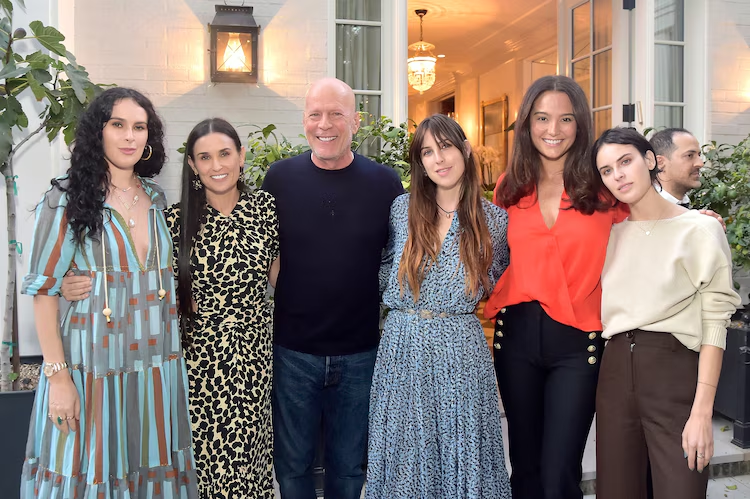 The experience spurred Heming Willis — a model and entrepreneur who prefers to work out of the spotlight — to move front-and-center as a public advocate for caregivers and the need for more support for loved ones of people living with conditions like dementia.
The experience spurred Heming Willis — a model and entrepreneur who prefers to work out of the spotlight — to move front-and-center as a public advocate for caregivers and the need for more support for loved ones of people living with conditions like dementia.
Dementia — an umbrella term for a decline in mental abilities such as thinking, memory, and decision-making — impacts millions of Americans and their families. According to the CDC, nearly 7 million older adults in the U.S. have Alzheimer’s, the most common type of dementia.
Heming Willis said she wrote her book, “The Unexpected Journey,” in hopes it is a lifeline for caregivers, especially those who care for people with FTD, which is one of the most common dementias in people under 60, according to the CDC.
She said she also wants more people to know about FTD, both so that they know they are not alone if a loved one is diagnosed with the disease, and so that they can get help early on and participate in the groundbreaking research that may one day lead to a cure or treatment for the disease.
There are clinical trials underway now for patients in the early stages of the disease.
“That is this whole motivation for me to raise awareness about this disease, because we want families, we want people to be able to be diagnosed earlier, when they can participate in these trials,” Heming Willis said, adding that she hopes people remember the “rare disease Bruce Willis has” and find resources and not feel alone.
As she continues forward in her own journey as a caregiver, Heming Willis said she tries to stay in the present moment and not think back too much to the man she married and their early days of falling in love and raising children together, saying, “It’s hard to look back.”
When asked what she’d most like to talk with Willis about today, Heming Willis said she would just hope for a “conversation” with the man she loves.
“Just how he’s doing, [if] he’s okay, he feels okay. If there’s anything that we could do to support him better. I would really love to know that. If he’s scared. If he’s ever worried,” Heming Willis said. “You know, I just would love to be able to, just to have a conversation with him.”


